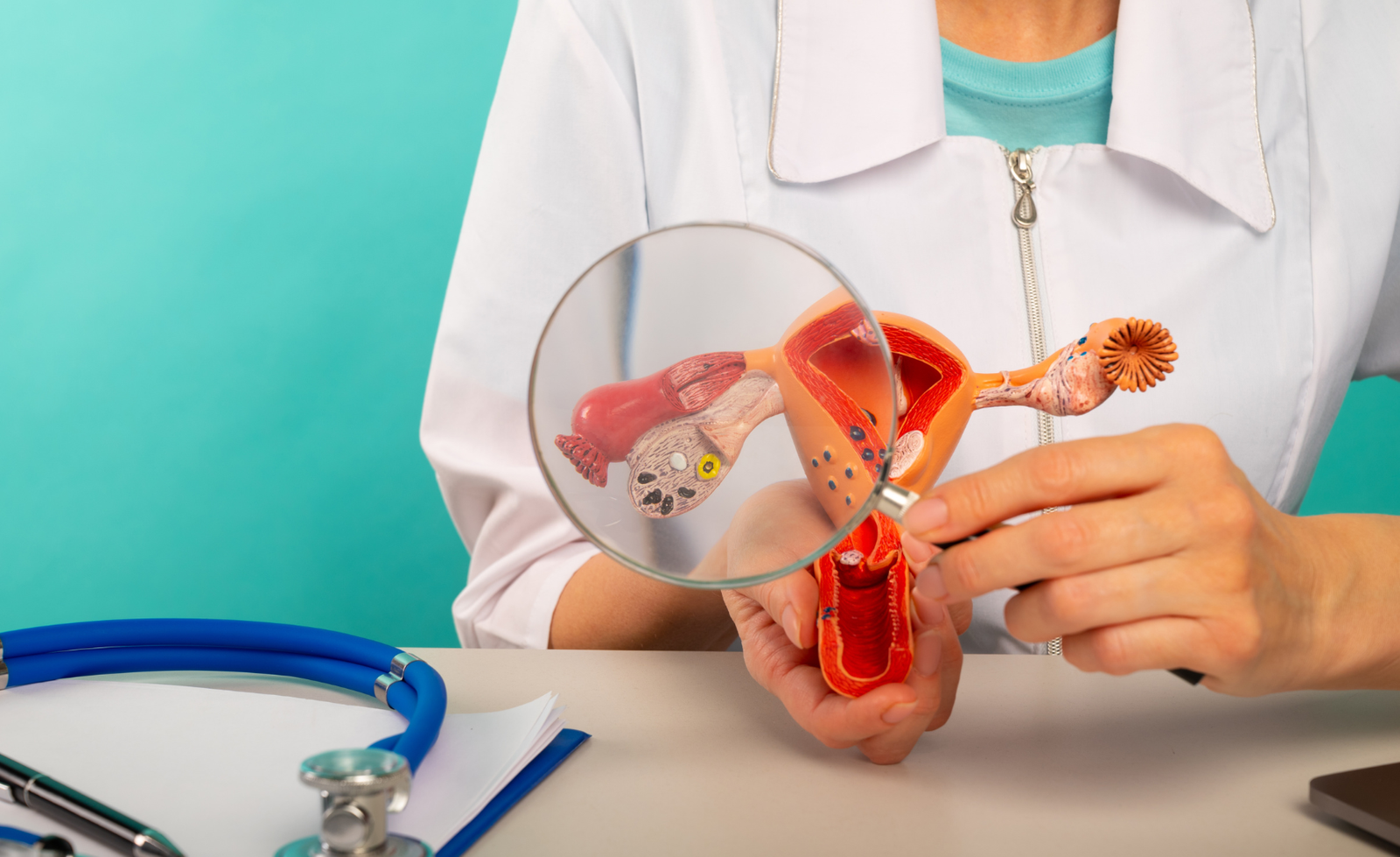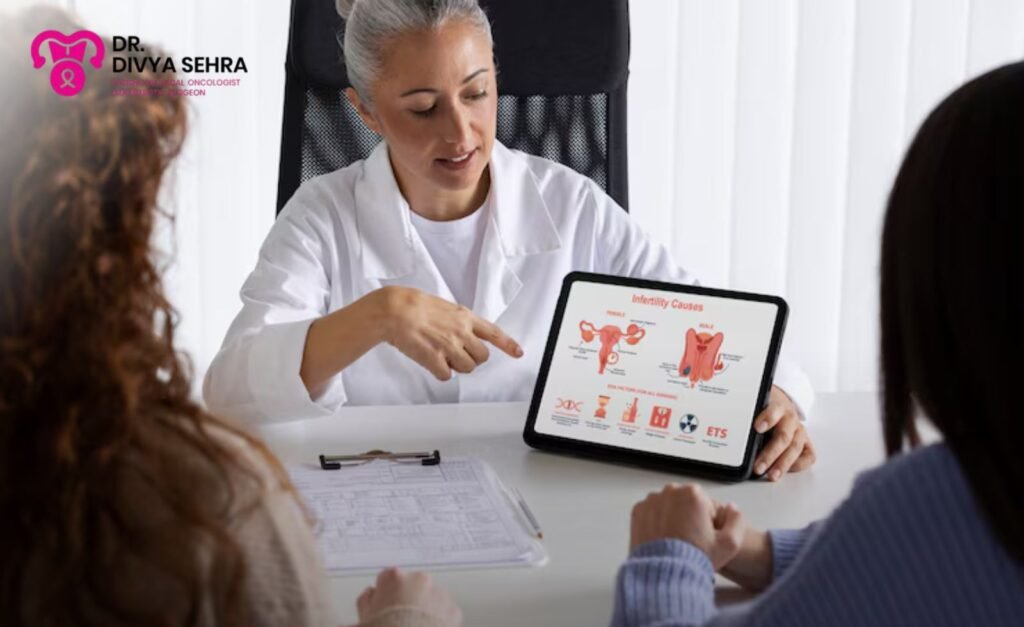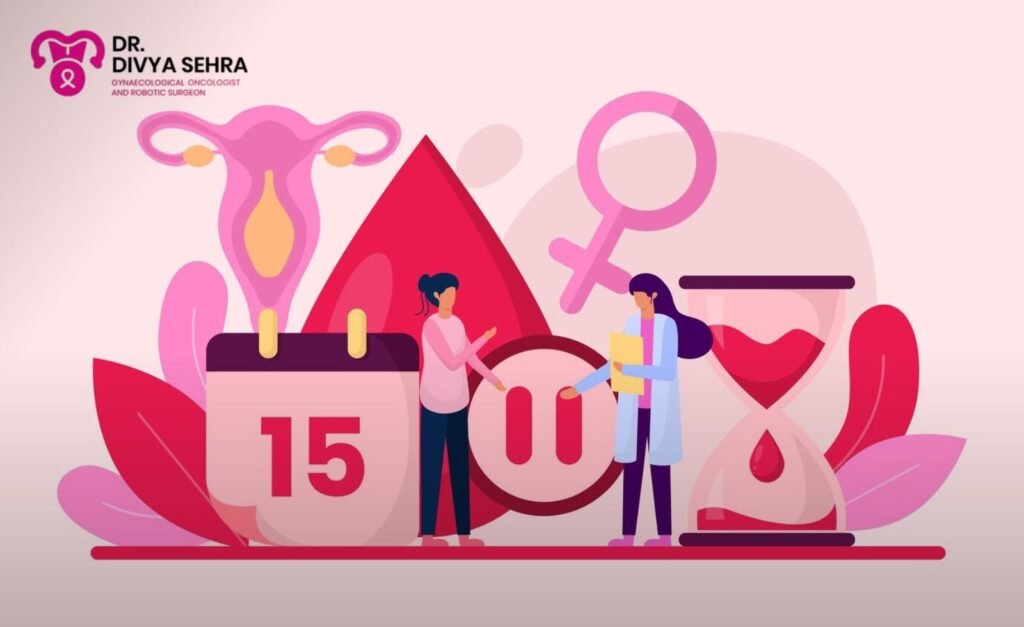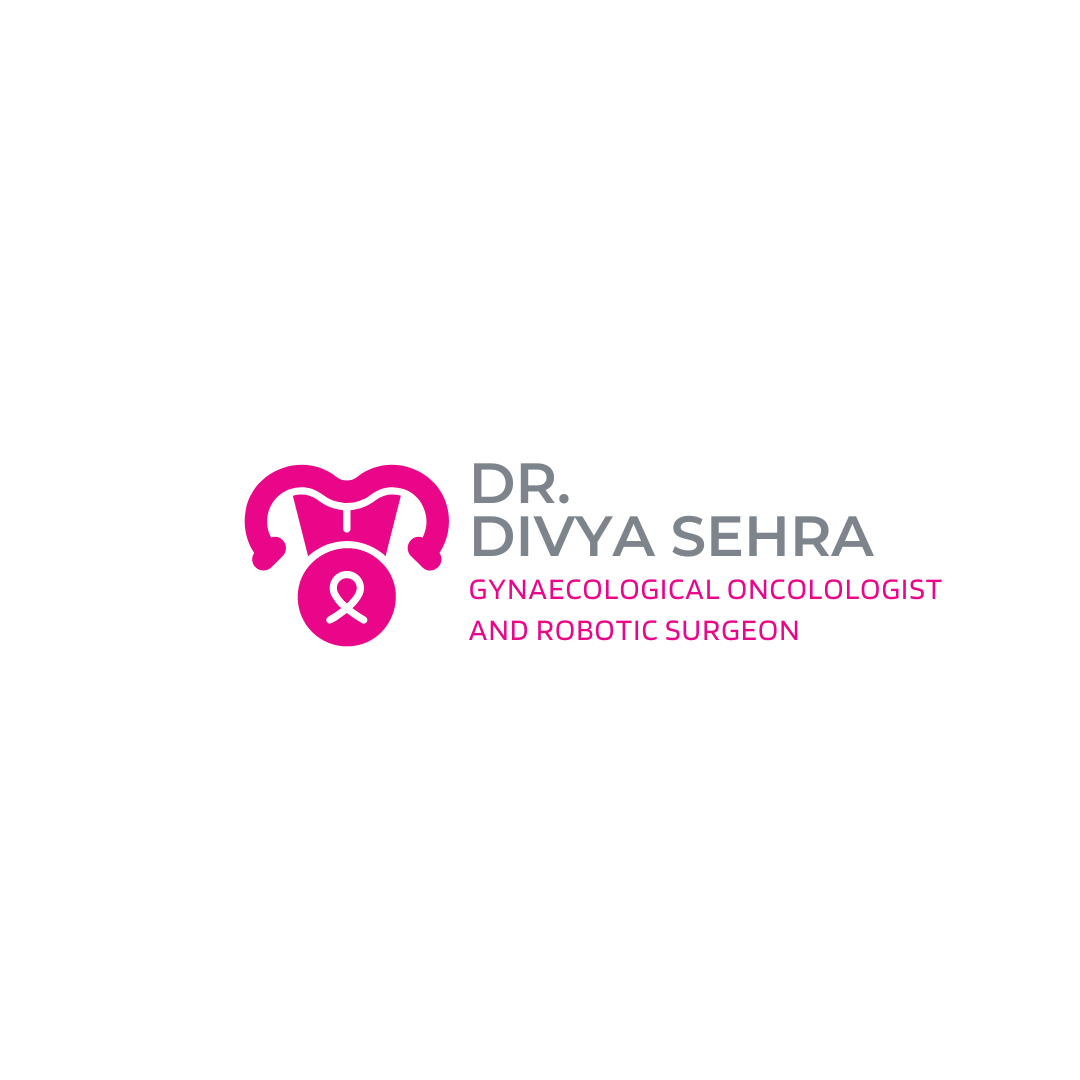
Understanding Causes, Symptoms, Treatments, and Nutrition Tips for Better Health
Ovarian cysts are fluid-filled sacs that develop within or on the surface of the ovaries. While many cysts are harmless and resolve naturally, some can cause discomfort or complications. This guide, presented by Dr. Divya Sehra, a leading gynecologist and gynecologic oncologist, will cover essential information on ovarian cysts, including their causes, symptoms, and the best treatment approaches, along with dietary tips for management.
What Exactly Are Ovarian Cysts?
An ovarian cyst is a sac filled with fluid that can form on or inside an ovary. While these cysts often go unnoticed, some can lead to symptoms or complications if they grow in size or rupture. The most common types include functional cysts, which are related to the menstrual cycle, and other forms like dermoid cysts, cystadenomas, and endometriomas.
Types of Ovarian Cysts
- Functional Cysts:
- Follicular Cysts: Arise when the follicle fails to release an egg during ovulation.
- Corpus Luteum Cysts: Form after the egg is released but the follicle does not dissolve, causing fluid accumulation.
- Dermoid Cysts: Comprise tissues like skin, hair, or even teeth since they originate from embryonic cells.
- Cystadenomas: These non-cancerous growths develop on the ovary’s surface.
- Endometriomas: These result from endometriosis, where uterine-like tissue attaches to the ovaries.
Recognizing the Symptoms of Ovarian Cysts
Most ovarian cysts are asymptomatic, but when symptoms occur, they may include:
- Persistent or sharp pelvic pain on one side.
- Abdominal bloating or a feeling of fullness.
- Painful intercourse.
- Irregular menstrual cycles.
- Increased frequency of urination due to bladder pressure.
- Nausea or unexplained weight changes.
If you experience severe or sudden pain, especially accompanied by dizziness or rapid breathing, this may indicate a ruptured cyst or torsion and requires immediate medical attention.
Common Causes of Ovarian Cysts
Several factors contribute to the development of ovarian cysts:
- Hormonal Imbalances: Disruptions in hormonal cycles can lead to cyst formation.
- Endometriosis: Endometriotic tissue can attach to the ovaries, forming cysts.
- Pregnancy: In some cases, cysts form during early pregnancy to support the pregnancy until the placenta is fully developed.
- Severe Infections: Infections that reach the ovaries can result in cyst development.
How Ovarian Cysts Are Diagnosed
Dr. Divya Sehra uses a combination of diagnostic tools to accurately identify ovarian cysts:
- Ultrasound Imaging: Helps visualize the cyst’s size, shape, and composition.
- Blood Tests: For specific markers, especially in post-menopausal women, to rule out cancer.
- Laparoscopy: A minimally invasive procedure that allows direct observation of the cyst.
Effective Treatment Options for Ovarian Cysts

Observation and Monitoring
In many cases, small cysts that do not cause symptoms can be managed with a “watch-and-wait” approach, with periodic ultrasounds to track changes.
Medication
- Birth Control Pills: Oral contraceptives may prevent new cysts from developing.
- Pain Management: Over-the-counter pain relievers can alleviate mild discomfort.
Surgical Options
For larger or symptomatic cysts, Dr. Sehra may recommend surgical removal:
- Laparoscopy: Minimally invasive surgery to remove smaller cysts while preserving healthy ovarian tissue.
- Laparotomy: A more extensive procedure for larger or potentially cancerous cysts.
The Role of Diet in Managing Ovarian Cysts
Recommended Foods:
- Fiber-Rich Foods: Whole grains, fruits, vegetables, and legumes help regulate hormone levels.
- Anti-Inflammatory Ingredients: Fatty fish, turmeric, ginger, and olive oil reduce inflammation.
- Healthy Fats: Avocados, seeds, and nuts support hormonal health.
- Lean Proteins: Chicken, fish, and plant-based proteins help stabilize blood sugar levels.
Foods to Limit:
- Sugary Snacks & Processed Foods: These can increase inflammation and hormone disruptions.
- Red Meat & Saturated Fats: These may worsen inflammation.
- High-Fat Dairy: For some women, dairy may contribute to hormonal imbalances.
Lifestyle Recommendations for Ovarian Cyst Management

- Exercise Regularly: Moderate exercise helps balance hormones.
- Stress Management: Techniques such as meditation and yoga can reduce stress-induced hormonal disruptions.
- Avoid Smoking and Alcohol: These can aggravate hormonal imbalances.
Consult Dr. Divya Sehra for Expert Care
If you’re experiencing persistent pelvic pain or irregular menstrual cycles, it’s essential to seek medical advice. Dr. Divya Sehra, with her extensive experience in gynecology and gynecologic oncology, offers comprehensive treatment, including minimally invasive surgical options, to ensure the best outcomes while preserving fertility.
Book Your Appointment today with Dr. Divya Sehra to discuss personalized treatment options. Visit her clinic in Delhi for expert gynecological care and get the right guidance for managing ovarian cysts effectively.



